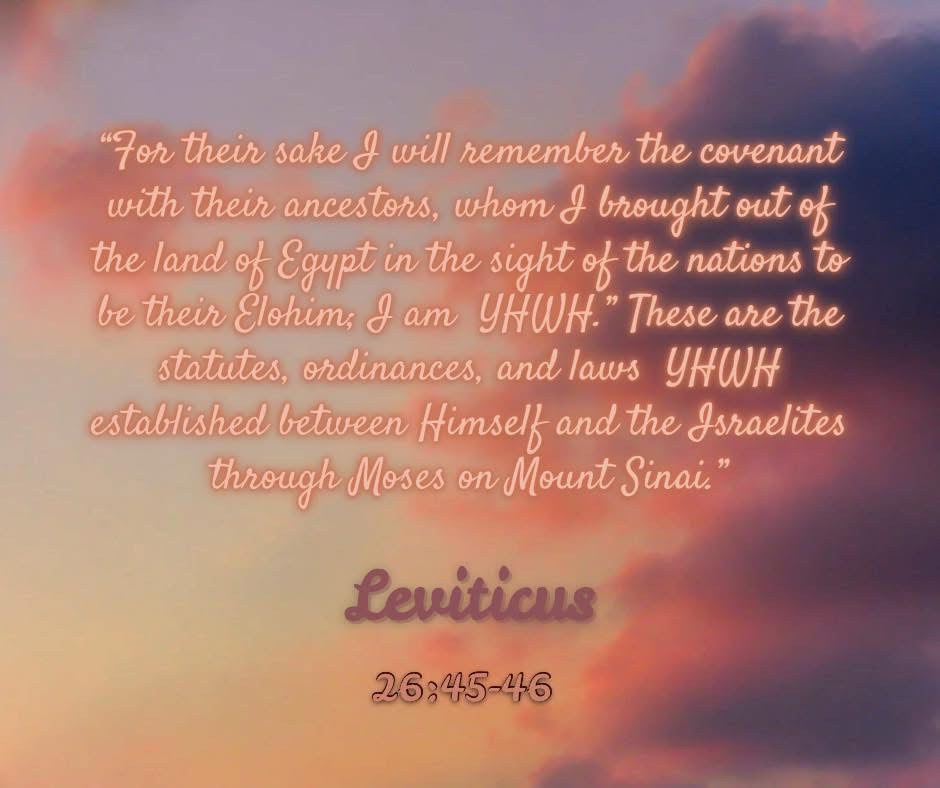Watch
Events
Articles
Market
More
YHWH has never broken His Covenant with our ancestors and therefore never broken His Covenent with us, though we find ourselves afar off and lost among the nations of the world.
We broke the Covenant. Our ancestors did aswell. But YHWH never did. And for oursake He sent His Word to live and die as one of us to mend the Covenant we had rent and make it new again.
It’s easy to believe YHWH was only making this promise to Jews if we accept the new definitions of Jews as all of Israel and ignore all the rest of our ancestors’ position, rights, and tribal authority. If we accept the world’s redefining of who is Israel, we will easily exclude ourselves here.
But what happens when we simply study the subject without making it say differently than the ink on the page? We find we are the ones descended of those exiled of all tribes of Israel (or grafted in after) and therefore Israel ourselves.
We find the promise was offered to all Israel including Jews but not limited to their few tribes.
YHWH promises to remember the Covenant. Will you remember it too?
He promised it in His Name. Though many wicked ministers have tried to change His Name or to hide it behind all manner of alternatives from the pagan nations we live in, yet His Holy Name remains the same - the same as ever It was and will be…His Name is the same which seals the Covenant eternal.
Therefore return to YHWH Today. Call upon His Holy Name in honor and reverence. Claim His Promise and your place in it. Claim your place in Israel. He has made room in Israel for you if you are willing to return.
#questioneverything
#getbiblical
templecrier.com




Have you ever said something like, “I believe it with all of my heart.” And you probably meant what you said to the best of your understanding. Jeremiah 17:9, “The heart is deceitful above all things and beyond cure. Who can understand it?” The context of this is someone who trusts in man is cursed while the one who trusts the Creator is blessed. In the next verse our Creator says He will search the heart and the innermost thoughts to reward mankind with what he’s deeds deserve.



Thought for Today: Shabbat May 31
Yeshua, we read; “having risen long before daylight… went out and departed to a solitary place; and there He prayed” (Mark 1:35). If the Son of YHVH Elohiym needed time alone with His Father, how much more do we? It is not easy to shut out this cruel world, set aside a few minutes by yourself, and spend time in YHVH’s Word and Prayer. But it is essential if we want to grow in our relationship with YHVH and be strengthened for the battles ahead. Do not delay! Spend time alone with Him today and every day.



Created OOMs 👉
a scratched and peeling painting of a humanoid steampunk hare eating a cluster of pinwheels in a restaurant served by puppets, in the style of wassily kandinsky
{prompt for AI found OOM}
#dailycreatedoom




Created OOMs 👉
a scratched and peeling painting of a humanoid steampunk hare eating a cluster of pinwheels in a restaurant served by puppets, in the style of wassily kandinsky
{prompt for AI found OOM}
#dailycreatedoom



